By Ali Hussein
The so called Hezbollah resistance movement is the force protecting Lebanon’s states quo and the corrupt political elite in Lebanon. Hezbollah stopped being a resistance movement ever since Israel pulled out of Lebanon in May 2000. Most recently anti-Hezbollah sentiment is “growing like a snowball ”
Beirut – Since 2000 Hezbollah has been using ints arms to gain influence in Lebanon and dictate the politics of the country . No government could be formed unless Hezbollah decides who should be the prime minister and how the cabinet should be formed and no president could be elected unless Hezbollah decides who should be the president
This is why disarming Hezbollah and ending the Iranian occupation should be the main issue in the upcoming election in Lebanon
The straw that broke the camel’s back” over the past two decades was power being handed to a militia faction that follows a sectarian ideology foreign to its local sectarian community, as well as the Lebanese and Arab climates. It is part and parcel of the Iranian-Syrian political axis and is totally loyal to it.
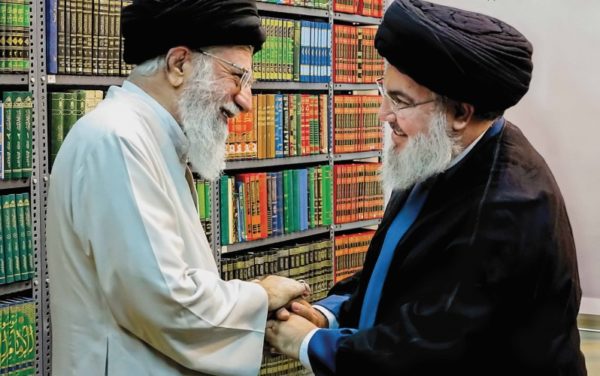
There is no doubt the other Lebanese factions have their own alliances with other counties in the region. However, those alliances did not rise to the level of bordering on total ideological and organizational alignment that would render those factions integral parts of those alliances whose dictates and commands are always followed, as is the case for Hezbollah with Iran.
This unique and highly complicated relationship has left Hezbollah without any form of allegiance to the nation or consideration for the country’s interests, leaving Lebanon without its Arab and Western dimensions and putting it in the center of the region and the world’s confrontations on a regional axis’ side.
Hezbollah’s attempts to distinguish itself from the ruling corrupt political class, counting on its reputation as a resistance group that forced the withdrawal of Israeli occupying forces from south Lebanon in 2000 and battled the Islamic State in Syria, are no longer convincing to many, even to once loyal supporters.
The group’s growing dominance in internal politics, engagement in regional wars and in thwarting the 2019 popular uprising is tarnishing its image as the nation’s defender, critics say.
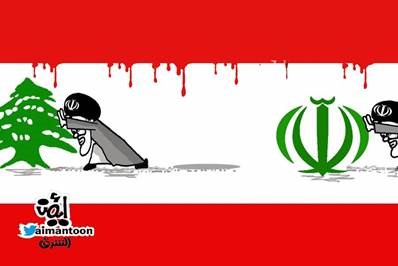
With a continued 22-hour-a-day power cut, lack of fuel and medicines coupled with exorbitant food prices, priorities are in Lebanon are shifting to feeding the family, securing medical treatment or simply making ends meet.
The poverty rate has nearly doubled — from 42% in 2019 to 82% in 2021, according to the United Nations Economic and Social Commission for Western Asia. Over two years, the national currency , the Lira has lost over 90% of its value while the country witnesses a dramatic collapse in basic services, amidst an unemployment surge and closure of businesses.
Not spared from the hardship, complaints within Hezbollah’s own community are not hidden anymore.
“More and more people are expressing their discontent openly,” said a Shiite woman, in her 60s from the Baalbeck region, a Hezbollah stronghold in eastern Lebanon with the highest number of the group’s fighters killed in the Syria war. “They live day by day and are busy securing the basic things, like bread and fuel.”
“With the overall deteriorating economic conditions, people are speaking out, asking where Hezbollah chief [Seyyed Hassan Nasrallah] is taking us and for what?” she said. “We are ready to fight Israel and support the resistance, but why are we engaging in wars in Syria and Yemen while we are dying of hunger?”
Brig. Gen. Hisham Jaber, head of Middle East Center for Studies and Public Relations who was once close to Hezbollah and a staunch defender of its anti-Israel resistance, confirmed a growing dismay among the group’s supporters in its main strongholds in southern Lebanon and the eastern Bekaa region.
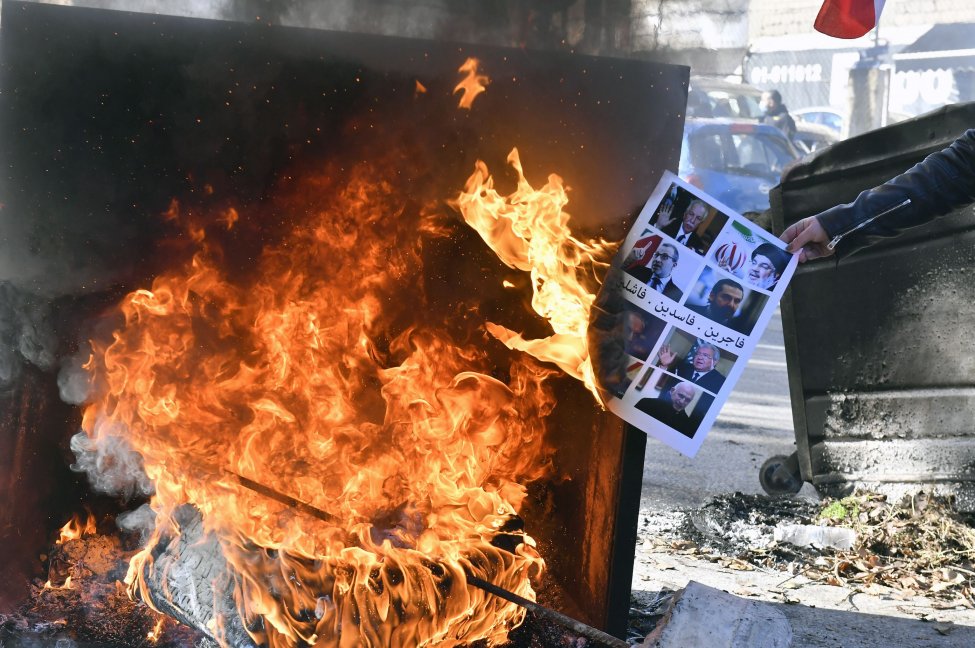
“Yes, yes, yes…Today, Hezbollah has lost lots of its popular support,” Jaber told UPI. “People consider that Hezbollah is part of this political class which led the country to this [collapsing] point, saying, ‘You probably did not steal, but you kept silent on the thieves and covered up for them.’ Hezbollah cannot deny that.”
He argued that Hezbollah is “not aware of the danger” facing it and asked whether “it is political stupidity” or because it is “implementing orders from Iran.”
Hezbollah, which has been armed and financed by Tehran since it was founded by Iran’s Revolutionary Guard following the Israeli invasion of Lebanon in 1982, emerged as a powerful force over the years. In the past decade, it helped Iran extend its influence and power in the region, engaging in the Syria war and supporting the Iran-aligned Houthi rebels in the Yemen strife.
Jaber said Hezbollah still receives some $500 million a year from Iran, which has its own political interests in the region and is holding onto the group as an important card.
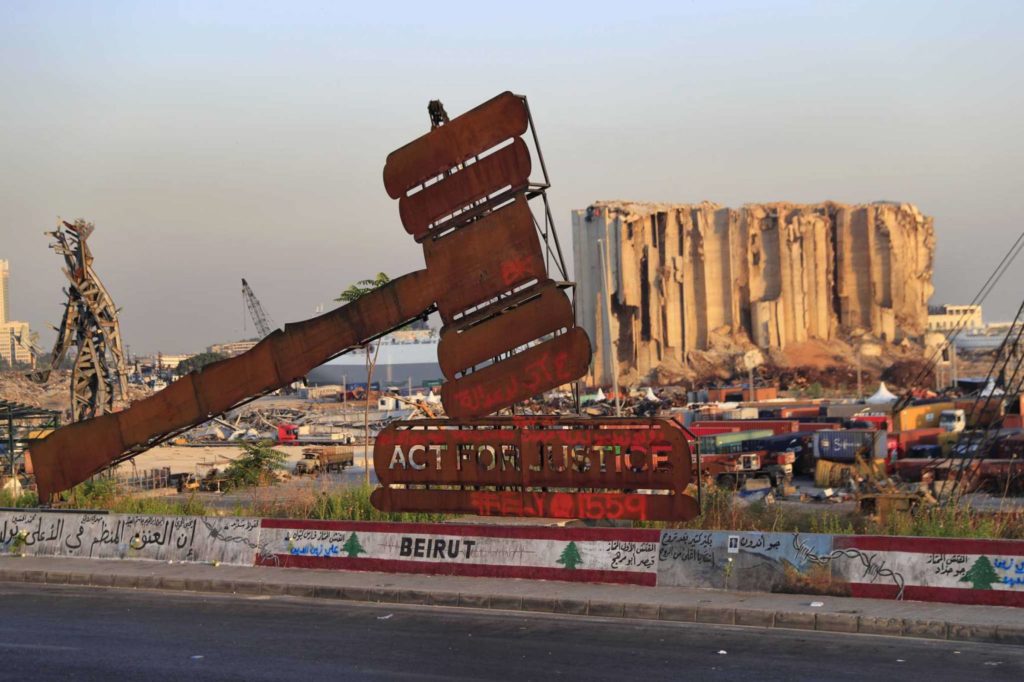
“This is very natural, but are the people [Lebanese] accepting this? No, they are not,” he said.
Hezbollah officials justify their groups’ reluctance to help fight corruption in the country by saying they fear a fallout with their allies, who are accused and blamed for the widespread corruption.
“They fear that this could lead to a big, bloody conflict. Their phobia of ending up involved in a [sectarian] strife is making them benefit from this corrupt political class,” Jaber said, warning that anti-Hezbollah sentiment is “growing like a snowball.”
Iran’s ‘occupation’
Lebanese protest against Iran’s influence in their country, JAN 10, 2022
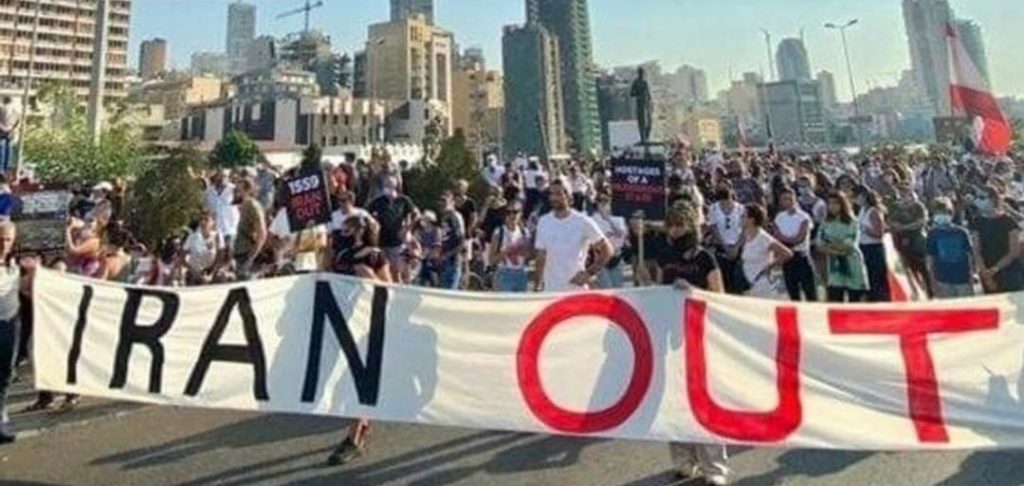
Such exasperation with Hezbollah was translated last January with the formation of a new front targeting Iran directly.
The National Council to Lift the Iranian Occupation of Lebanon was established by some 200 political figures, including former ministers and parliamentarians known for their opposition of Iran and Hezbollah, intellectuals and key civil society figures.
Ahmad Fatfat, head of the council and former minister, said their goal was to end Iran’s “occupation,” break free from Hezbollah’s armed dominance and restore Lebanon’s sovereignty.
“There is occupation by proxy… Even if Iran does not have boots on the ground, Hezbollah exists with 150,000 missiles and 100,000 fighters threatening the country from inside,” Fatfat told UPI, recalling how Iran bragged about its control of four Arab capitals, including Beirut.
He said the problem is about Hezbollah’s “illegal weapons” and practices that obstruct the parliament or Cabinet meetings to impose its conditions and “force the others to do what it wants.”
He was mainly referring to the election of Hezbollah’s Christian ally, former Army commander Gen. Michel Aoun, as president in October 2016 after the post remained vacant for 29 months. Hezbollah also turned against former Prime Minister Saad Hariri, sending hundreds of its fighters clad in black to deploy in the streets of Beirut to force his ouster in 2011.
The party was also accused of being behind the 2005 assassination of Rafik Hariri, Saad’s father and former prime minister, and 11 other politicians, journalists and security officials. 2 Hezbollah operatives were indicted in Hariri’s assassination in absentia because Hezbollah refused to hand them over top the UN led court
Fatfat said adopting reforms and fighting corruption are necessary to get out of the current financial crisis.
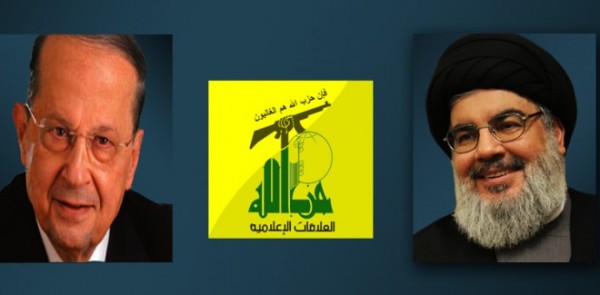
“But how can you rebuild the state with the presence of illegal weapons that covered for all the corruption over the years?” he said, blaming Hezbollah for the country’s collapse that started in 2011 when the militant group sent its fighters to Syria to fight along President Bashar al-Assad, tightened its grip on Lebanon and pushed away its traditional political and financial backers, the Arab Gulf countries.
Fatfat, believes that the Lebanese are more aware of the need to get rid of “Iran’s occupation,” as they did with the French mandate in 1943, Israeli occupation in 2000 and Syrian military presence in 2005.
“Hezbollah will well use such attempts to confirm that it is facing big conspiracies and thus reassemble the Shiites around it,” Amin Kammourieh, a journalist and an independent political analyst, told UPI.
The emergence of a third force from within the Shiite community, which is currently dominated by Hezbollah and its Amal Movement ally, may be the main solution to Lebanon’s problems
There can be no real justice or sovereignty in Lebanon if Hezbollah is allowed to keep its illegal arms
Time to have a free and independent Lebanon
Time to end the Iranian occupation of Lebanon
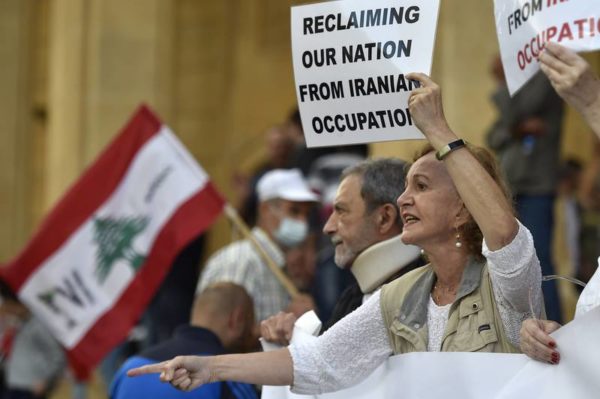

Leave a Reply
You must be logged in to post a comment.